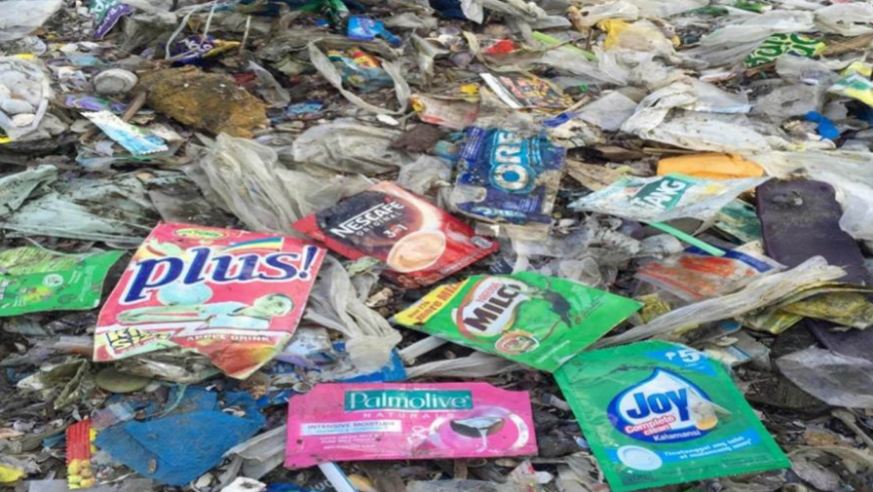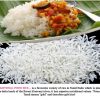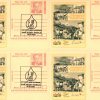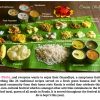Goa is abuzz with excitement as vintage bike and car owners, users, collectors and fans are decking […]

MNCs — BIGGEST CULPRITS
INFOCUS, Oct 12- Oct 18 2019 October 11, 2019SACHETS: Recycling alone is not the solution for plastic pollution. Most of the plastic found in the environment today has no value in our recycling systems, costing more to collect and process than it’s worth when sold—if it even can be sold You won’t find plastic bottles in nature as often as other kinds of waste, as they’re more valuable and get collected as a form of income
By Sangeeta Krishnan
MNCs, in their greed to tap rural markets, have taken to offering sachets of various sizes for a vast range of products — ranging from washing powder to shampoos and even jams and marmalades
Single-use plastic ban:
Single-use plastic items including plastic bags, spoons, cups, straws and bottles were supposed to be banned with effect from October 2, 2019, on the occasion of Mahatma Gandhi’s 150th birth anniversary. Although this has been postponed, the Narendra Modi-led Union Government aims to completely eliminate the use of single-use plastic by 2022.
India generates about 9.4 million tonnes of plastic waste each year and with no effective disposal method, plastic waste ends up the roadsides, in landfills and water bodies.
Plastic waste management is a global concern. Globally, around 90% of the plastic produced is discarded as waste. So far, more than 60 countries have banned single-use plastic or curbed its use.
Single-use plastic ban from October 2
India was set to impose a nation-wide ban on single-use plastic on October 2, 2019, on the occasion of the 150th birth anniversary of Mahatma Gandhi. As per reports, six single-use plastic items were to be scrapped with effect from that day — including plastic bags, straws, cups, plates, small bottles and certain types of sachets.
Prime Minister Narendra Modi, who has set the goal to make India free of single-use plastics by 2022, had appealed to the nation to stop the use of single-use plastic in his speech on India’s Independence Day. The Union Government is expected to launch a nation-wide campaign against single-use plastic in the second week of September.
Single-use plastic items
The single-use plastic ban, when imposed, is expected to cover six single-use plastic items initially including plastic bags, straws, cups, plates, small bottles and certain types of sachets. The ban will cover manufacturing, usage and import of such items. The Centre has asked all the Ministries to participate in the campaign. The campaign is a part of the Central government’s ongoing Swatch Bharat Mission.
Single-use plastic alternatives
The Union Food and Consumer Affairs Minister Ram Vilas Paswan had earlier asked Pepsi, Coco Cola and other packaged drinks manufacturers to come up with an alternative packaging solution. The Minister had convened a meeting with bottled water manufacturers and various government departments to find a suitable alternative to single-use plastic bottles for selling drinking water to prepare ahead for the single-use plastic ban.
The industry is aiming to produce packaging material that is recyclable with the use of high viscosity polymer. For the packaging of milk, the industry is looking to manufacture milk pouches from polyester filament yarn (PFY). The yarn is recyclable and can be used 45-50 times. The pouches and bags could be sent back by the customers to their milk suppliers.
Bollywood advocates single-use plastic ban
Bollywood actor Aamir Khan came out in support of PM Modi’s initiative to curb ‘single use plastic’ by saying that it is an effort that everyone should support strongly.
Salman Khan had also shared a video in June, in which he was seen offering water to a monkey from a plastic bottle and the monkey refused to take it. When the superstar offered the monkey, whom he referred to as ‘’Bajrangi Bhaijaan’’, water in a glass the monkey quickly accepted.
What is single-use plastic?
Single-use plastic is a form of plastic that is disposable, which is only used once and then has to be thrown away or recycled.
Single-use plastic items include plastic bags, water bottles, soda bottles, straws, plastic plates, cups, most food packaging and coffee stirrers.
Why is single-use plastic being banned?
With climate and environment becoming a rising global concern, plastic pollution and plastic waste management have become the focal point of worry.
Millions of tons of plastic is being produced every year, which is not biodegradable. Hence, countries across the globe are adopting and implementing strategies aimed at eliminating the use of single-use plastic.
As only 1%-13% of plastic items are recyclable, the rest ends up either buried in the land or water bodies, eventually reaching the oceans, leading to polluting of water bodies and killing of marine life.
Most plastic is not biodegradable and over a period of time will breaks up and release toxic chemicals into the water bodies, which in turn make their way into food and water supplies.
If the plastic does not end up in the water, it ends up as a huge pile of waste that is hard to dispose of. Many South Asian countries have become global dump yards of plastic. The plastic pile-up is not only affecting the human body but also choking the environment.
The UN Environment head Erik Solheim had also highlighted earlier that plastic pollution is one of the world’s biggest environmental threats and countries have to come up with a better plastic waste management and disposal plan to deal with the huge plastic dump that is degrading the environment.
India’s effort to curb use of single-use plastic
India in the first phase of its campaign against single-use plastic will spread nation-wide awareness about harmful effects of single-use plastic. In the second phase, the government agencies will collect all the single-use plastic items and they will be recycled in the last phase.
The government will be introducing penalties for violation of the single-use plastic ban but the penalties are expected to come into effect six months after the ban, in order to give people time to adopt alternatives to the single-use plastic items.
Some states in India have already introduced a ban on sale, storage and use of single-use plastic items such as Sikkim, Delhi, Maharashtra, Karnataka, Uttar Pradesh, Tamil Nadu, Nagaland and Jharkhand .
Air India, national carrier also announced its plan of banning single-use plastic items in its flights from October 2, 2019. In the first phase, the airlines will implement the ban on all flights of Air India Express and Alliance air and in the second phase, the plan will be implemented in Air India flights.
Global single-use plastic ban
The European Union has targeted to eliminate single-use plastic items such as plastic straws, knives, forks and cotton buds by 2021.
China is also gradually cutting down its use of single-use plastics. One of China’s island provinces, Hainan, has already set its goal of eliminating single-use plastic by 2025. The Chinese Government also imposed a ban on the import of foreign plastic waste, forcing countries like the US and UK to find new outlets to dispose off their plastic trash. As a result, plastic waste was redirected in huge quantities to Southeast Asian nations.
Marriott International, one of the world’s largest hotel chains, also announced that it would be eliminating the single-use toiletry bottles from its toiletry kit for guests. The move is a part of the hotel chain’s efforts to reduce its environmental impact.
Single-use plastic alternatives
There is no viable alternative as of now for single-use plastic items. Any alternative to single-use plastic items, especially single-use plastic bottles, which are used to sell packaged drinking water, needs to be affordable for consumers. For instance, a drinking water bottle, which costs `20 currently, cannot be priced higher than that. Further, customers have shown confidence in the sealed water bottles over the years and hence, the alternative should also be up to the mark.
Since recycling of plastic is not a permanent solution, manufacturers of single-use plastic have been asked to look for other alternatives that are biodegradable. The Railway Ministry, which manufactures and sells packaged drinking water ‘Rail Neer’ is also looking for alternatives including polymers to make their packaging biodegradable.
Courtesy: Livemint














